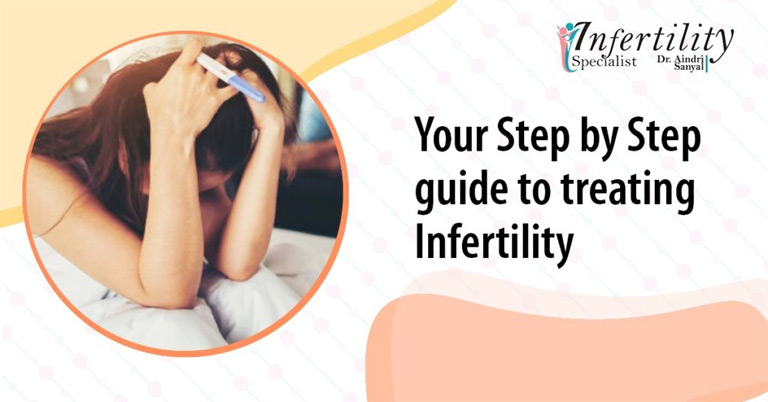
If you are under 35 years of age and have been trying regularly to conceive for more than 12 months or your age is above 35 years and you have been trying to conceive for more than six months, you must consider consulting a fertility specialist in Kolkata for a basic infertility workup which is the first step for diagnosing and treating infertility.
A fertility workup is a preliminary step in determining the reasons why a partner or the couple is experiencing difficulties in conceiving. While the fear of the unknown can be a daunting experience and you may be experiencing tremendous anxiety when you are facing trouble conceiving, identifying fertility problems will empower you and the fertility team to identify solutions. The following is a step-by-step guide to what to expect when you schedule the first workup with fertility specialist Dr Aindri Sanyal.
Initial Consultation for Treating Infertility
During the initial consultation, any fertility specialist in Kolkata is likely to ask detailed questions about your medical history that will relate to all medical and lifestyle factors that may contribute to infertility. For instance, during the first consultation with fertility specialist Dr Aindri Sanyal, she will create a detail diagnostic plan tailored for you. In this plan, she may ask you to answer questions like:
- Are your fallopian tubes normal?
- Have you been ovulating regularly?
- Is the uterus receptive to implantation?
- Is your partner’s sperm count adequate?
Female Testing
There are many standardized tests that the female must go through during a fertility workup process:
Three-day bloodwork
The reason why this is referred to as three-day blood work is that a holistic blood draw is taken on the third day of a woman’s menstrual cycle to determine the hormone levels. The blood work will look at the E2 (oestrogen) to check if the main female reproductive hormone is secreting normally. The blood profile will also determine the level of follicle-stimulating hormone (FSH), a chemical released from the brain. It stimulates the ovary to mature an egg.
The blood work will look at the Anti-Müllerian hormone (AMH), one of the accurate predictors of a woman’s egg supply. It doesn’t vary from month to month and does not depend on the menstrual cycle. The luteinizing hormone (LH) is also measured. This hormone typically releases a mature follicle.
An Internal Baseline Ultrasound
The workup process also includes a uterus ultrasound to see if a woman’s uterus is normal and keep track of the antral follicle count. The latter represents eggs available in that month for a possible pregnancy.
HSG Test
Hysterosalpingogram or the HSG test is an x-ray of the fallopian tubes and uterus. The test helps to determine the condition of the uterus and see if the fallopian tubes are blocked or not. It also looks to determine if there are polyps, fibroids, or scar tissues that may be preventing pregnancy.
Male Testing
Among 40 to 50% of infertile couples struggling to conceive, the male partner has a condition that is contributing to a couple’s infertility; hence, it is imperative to analyze their sperm health and count. The tests are less intrusive than female infertility tests.
Semen Analysis
An andrologist conducts a semen analysis to examine a man’s sperm’s potential to fertilize an egg. The number of sperms and whether or not they are normal — along with how well they swim — will be analyzed during male testing.
Chlamydia test
A sample of a man’s urine maybe tested for chlamydia, as it may affect chances of fertility. A physician will prescribe antibiotics if chlamydia is detected.
To know more about male and female infertility workup, keep an eye in this space.


